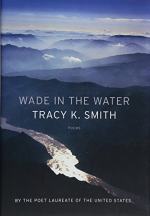
|
| Name: _________________________ | Period: ___________________ |
This quiz consists of 5 multiple choice and 5 short answer questions through Notes and Acknowledgments.
Multiple Choice Questions
1. In Stanza 5 of "The Greatest Personal Privation," what happened time and time again?
(a) Slave owners freed their slaves.
(b) Families were cut apart quickly and without warning.
(c) Slaves were freed from bondage.
(d) Male slaves were regularly sold.
2. In “Theatrical Improvisation,” In the back of the house, one person begins to do what?
(a) Shouts.
(b) Clap.
(c) Wails.
(d) Jeers.
3. In “I Will Tell You the Truth About This, I Will Tell You All About It,” how much money did a man say he raised to free himself and his wife?
(a) $1,000.
(b) $200.
(c) $10,000.
(d) $2,000.
4. The character in "Hill Country" passes what injured animal?
(a) A deer.
(b) A skunk.
(c) A dog.
(d) A cat.
5. In “Eternity,” the speaker asks what the soul is allowed to do?
(a) Remove.
(b) Destroy.
(c) Travel.
(d) Take with it.
Short Answer Questions
1. In “I Will Tell You the Truth About This, I Will Tell You All About It,” why does a wife ask her husband to send for her?
2. Has the narrator of "The Angels" had other angel encounters?
3. “Unrest in Baton Rouge,” is inspired by a photo by whom?
4. In "Beatific," how do the drivers of the cars feel?
5. In "Hill Country," the speaker describes someone as he travels where?
|
This section contains 286 words (approx. 1 page at 300 words per page) |

|




